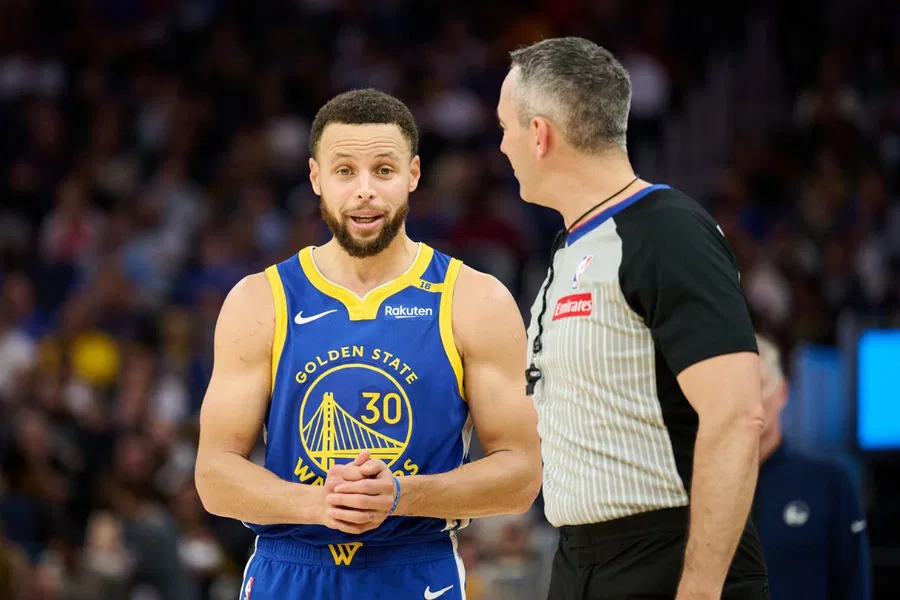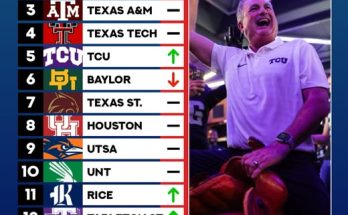The Golden State Warriors’ game against the Minnesota Timberwolves on Tuesday night turned into a flashpoint of frustration, not only for fans but also for Warriors broadcaster Bob Fitzgerald. A contentious call—or lack thereof—at the 6:09 mark of the fourth quarter prompted an emotional outburst from Fitzgerald, who voiced his dissatisfaction with the NBA officiating. It wasn’t just a singular moment of outrage but rather the culmination of grievances about perceived inconsistencies in officiating.
At the center of the controversy was none other than Stephen Curry, the two-time MVP and one of the most celebrated players in NBA history. Known for his composure, Curry uncharacteristically expressed visible frustration after a sequence where he felt the referees had failed to protect him from overly aggressive Timberwolves defenders. The Warriors’ point guard was driving to the basket when contact occurred, but no foul was called. Curry’s reaction—a mix of disbelief and exasperation—set the stage for Fitzgerald’s impassioned critique.
The Play That Sparked Outrage
With just over six minutes left in the game, the Warriors were battling to maintain a slim lead against a relentless Timberwolves squad. Curry, ever the offensive maestro, orchestrated a play that saw him navigate through a sea of defenders. As he approached the rim, he was met with significant physical contact, which many observers—including Fitzgerald—felt warranted a foul call. Instead, the referees allowed play to continue, leaving Curry and the Warriors empty-handed on that possession.
“How do you not call that?” Fitzgerald exclaimed on the live broadcast. “Steph is getting mugged out there! It’s ridiculous.” His comments resonated with Warriors fans who have long complained about what they perceive as a lack of respect for Curry from officials. Despite being one of the league’s most prolific scorers, Curry often appears to endure a level of physicality that goes unchecked compared to other superstars.
A History of Frustration
This moment was far from the first time Warriors fans and commentators have raised concerns about officiating disparities. For years, the narrative surrounding Curry’s treatment by referees has been a topic of debate. Unlike other high-profile players such as LeBron James or Giannis Antetokounmpo, who are often granted the benefit of the doubt in close-call situations, Curry—despite his accolades—has frequently found himself on the losing end of 50-50 calls.
Fitzgerald’s criticism didn’t stop at the missed foul. “It’s not just about this game,” he said. “This has been happening for years. You can’t tell me there isn’t a bias when you see Steph getting hammered on one end and a ticky-tack call going against us on the other. It’s maddening.”
The broadcaster’s impassioned rant reflects a sentiment shared by many within the Warriors’ community. Fans often point to the disparity in free-throw attempts as evidence. In this game alone, Minnesota attempted 29 free throws to Golden State’s 18, fueling accusations of uneven officiating.
Curry’s Quest for Fairness
Curry’s reaction to the non-call was telling. While he’s generally known for his calm demeanor, he took a moment to plead his case with the referees. His gestures, which included pointing to his arm to indicate where he had been hit, were clear but respectful. It was a rare glimpse of frustration from a player who has built his brand on sportsmanship.
Curry’s battle for fairness extends beyond individual games. As a global ambassador for the sport, he’s mindful of the example he sets for younger players. His willingness to engage officials in a measured way underscores his commitment to integrity. However, even Curry’s diplomatic approach seems to have limits, especially when calls—or the lack thereof—directly impact the outcome of crucial games.
The Broader Officiating Debate
The incident at the 6:09 mark reignited broader conversations about NBA officiating standards. Critics argue that referees are inconsistent in their application of rules, particularly when it comes to superstar players. While some players benefit from “superstar calls,” others, like Curry, seem to face a different standard.
Former NBA players and analysts have weighed in on the issue. “Steph doesn’t get the calls he deserves, plain and simple,” said retired guard Jamal Crawford during a post-game analysis. “He’s not a flopper, and he doesn’t complain much, so maybe refs overlook him. But that’s not an excuse. He’s one of the greatest players ever, and he deserves the same respect as anyone else.”
The NBA has made efforts in recent years to improve officiating transparency, including the release of Last Two Minute Reports (L2M) that review officiating decisions in the final moments of close games. However, these reports often do little to quell frustration, as they don’t change the outcome of games. In fact, they can sometimes exacerbate tensions by confirming missed calls.
The Impact on the Warriors
For the Warriors, officiating inconsistencies have tangible consequences. The team has been in a tight race in the Western Conference standings, where every win matters. Missed calls, particularly in close games, can mean the difference between securing a favorable playoff position or facing a tougher road in the postseason.
Head coach Steve Kerr has also been vocal about officiating issues, though he’s careful not to criticize referees too harshly in post-game interviews. “We just want consistency,” Kerr said after the game. “Our guys are out there competing hard, and all we ask is that the game is called fairly.”
A Call to Action
The frustration expressed by Fitzgerald, Curry, and the Warriors’ fan base highlights a larger issue that the NBA must address. As the league continues to grow in popularity, its officiating standards will come under increasing scrutiny. Ensuring fairness and consistency isn’t just about maintaining the integrity of the game; it’s also about preserving the trust of players, coaches, and fans.
One potential solution is increased accountability for referees. While the NBA’s current system includes performance reviews, many believe these measures should be more transparent. Additionally, expanding the use of technology—such as instant replay—could help reduce errors in critical moments.
For now, the Warriors will have to navigate these challenges as they pursue another championship. And while Fitzgerald’s comments may have been fueled by the heat of the moment, they reflect a genuine frustration that many in Dub Nation feel. Whether the NBA takes steps to address these concerns remains to be seen.
The Legacy of Moments Like This
As for Stephen Curry, his legacy remains untarnished. If anything, moments like these underscore his resilience and commitment to excellence. Despite the frustrations, he continues to perform at an elite level, setting an example for players and fans alike.
For Warriors fans, the hope is that their superstar’s fight for justice at the 6:09 mark against the Timberwolves serves as a wake-up call for the league. Whether or not the NBA responds, one thing is certain: Curry and the Warriors will keep fighting, both on and off the court.



